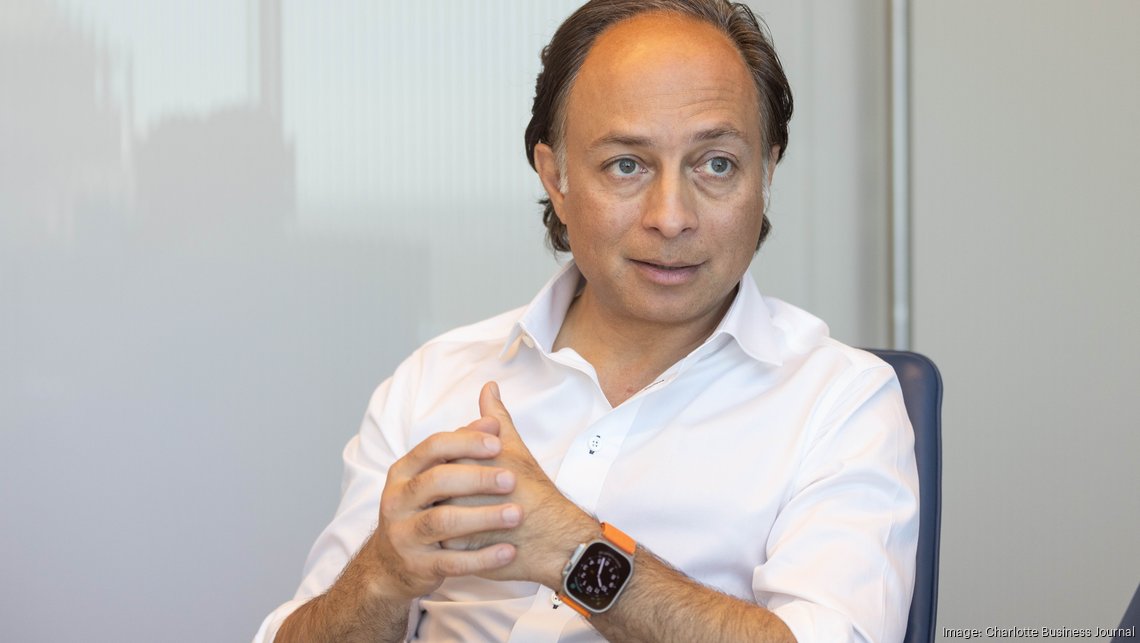
Symone Graham
Nov 16, 2023
Rahul Baig, head of venture capital coverage at Wells Fargo, is pictured at the Venture135 conference in Charlotte on Nov. 14.
Venture capital fundraising activity for startups has been down over the last five to six quarters, and it could continue to be a tough environment over the next several months, said Rahul Baig, head of venture capital coverage at Wells Fargo & Co. (NYSE: WFC).
“It's hard, there's no question about it,” he told CBJ during his visit to Charlotte as a speaker in RevTech Labs’ Venture 135 conference. “It's going to be a very tough six, seven months until we rebalance where we are, and we will get to see the other side of this pain.”
VC firms across the globe raised $221 billion in the first three quarters of this year, a 42% decline compared to $381 billion invested in the same period in 2022, according to Crunchbase data. And 2023 is on track to see the least amount of venture capital raised in the U.S. since 2017, according to a report by American Inno last month.
The slump started after Covid-19, Baig said. During the pandemic, many tech and VC firms were formed as deal value was at a record high. Then major macro-economic factors began to swell following the pandemic, with values falling and VC firms becoming more cautious with their investments.
"Inflation and other factors started to bubble up, and then they were like, 'We can't have all these companies simultaneously serving the population,'" he said. "So a correction happened, not necessarily in the underlying business but the value of the business."
Another reason for the decline is a lack of startup exits. The scarcity of initial public offerings over the last two years resulted in fewer gains for VCs and a lag in dealmaking at the later stages, American Inno reported.
"Until we have exits, it's very hard for those same limited partners to redeploy capital into new funds, because they have such an established relationship with the big ones," Baig said. "I think a lot of funds are not going to make it, but if you're coming in fresh with a fresh perspective and have something distinct, I think the (limited partners) are going to want different perspectives."
Meanwhile, the bar is set higher for startups to access VC funding as investors are ensuring that companies have durable revenues and a clear path to profitability. One way to have a more stable business is by going "solo," Baig said. Solo founders have more control and autonomy over their business and tend to raise more money than with a co-founder.
Baig said many founders are choosing to start their businesses in markets like Charlotte over places such as Silicon Valley because of the tight-knit startup culture and community. It also holds a high "intellectual capacity" that attracts business owners to move here and stay, he said.
"Other cities that grew up during Covid were amazing places to be but lacked intellectual capacity, and people returned to wherever they came from," Baig said. "If you belong to a smaller ecosystem where everyone knows each other and believes they can produce outcomes, you're more likely to get funded versus in Silicon Valley."
He is also hopeful that Charlotte and similar places become more known for tech because of the sector's growth potential.
"We all collectively want venture capital and the companies to succeed," Baig said on Wells Fargo's stance of the VC space. "We are bound by certain things we can do and not do, but we are incredibly invested in this ecosystem and want to be a contributor in any way we can — now or in the future."
